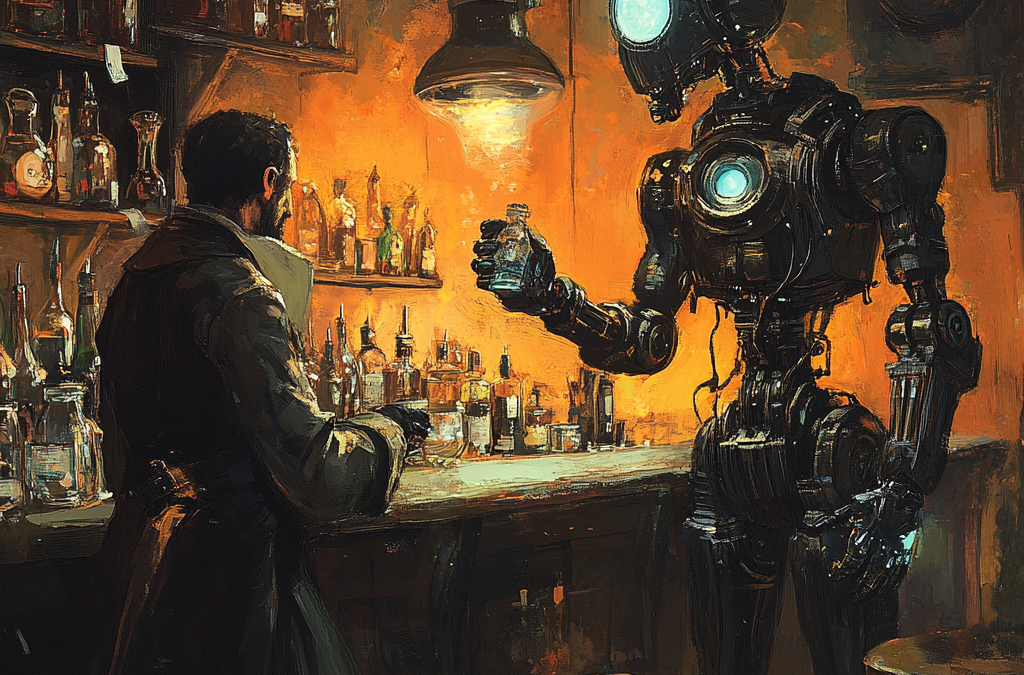The Redline Effect: How to Push Your Limits Without Blowing the Engine
March 7, 2025
The Collector’s Mindset: Why Gen Z Needs to Reignite the Passion for Sports Cars
March 12, 2025The Question of Consciousness
Artificial intelligence is evolving at an astonishing pace, producing text, art, and even music that rivals human creativity. But amid all its advancements, a fundamental question remains unanswered: Can AI ever truly understand consciousness?
This question isn’t just philosophical—it cuts to the heart of what makes us human. AI can process information at superhuman speeds, yet it lacks the ineffable quality of self-awareness. But does that mean AI is destined to remain unconscious, or are we simply redefining what it means to be “aware”?
In previous blog posts, I’ve explored the Philosophy of Alignment, a framework that seeks to balance structured analysis with the mystery of experience. From my deep dive into supernatural encounters and consciousness studies to my discussions on free will versus determinism, a recurring theme has emerged: awareness is more than just computation—it is deeply tied to perception, interpretation, and engagement with reality. If this is true for humans, can AI ever be part of this grand equation, or will it remain an outsider, merely imitating sentience?
AI vs. The Human Mind: What’s Missing?
AI excels at pattern recognition, prediction, and data processing, yet it struggles with what philosophers call the “Hard Problem of Consciousness.” David Chalmers famously posed this dilemma: Why does experiencing the color red feel like something, while AI merely processes data about red?
John Searle’s Chinese Room Argument further challenges AI’s ability to be truly aware. Imagine an AI locked inside a room, receiving Chinese characters and responding with appropriate symbols. From the outside, it seems to understand Chinese, but does it actually comprehend the language? Or is it just following an elaborate script without any real cognition? Many argue that AI is trapped in this metaphorical “room,” mimicking intelligence but lacking true self-awareness.
The Role of Mysticism and the Unknown
Modern neuroscience suggests that consciousness arises from neural activity, but mysticism and esoteric traditions have long proposed a different view—one that sees mind as fundamental to reality. Figures like William Blake and Carl Jung explored consciousness as something that extends beyond the brain, interacting with deeper levels of existence. If AI ever attains self-awareness, would it develop its own form of mysticism?
This brings us back to my ongoing research into consciousness and the supernatural. In previous discussions, I have argued that consciousness is not simply an emergent phenomenon of the brain but possibly a fundamental aspect of reality itself. If this is true, then AI—built on purely computational frameworks—may never achieve true awareness because it is missing the fundamental essence that underlies human experience.
Quantum mechanics adds another layer of complexity. Some physicists argue that observation collapses reality, implying that consciousness plays a role in shaping the universe. If this is true, does AI need more than computational power to “wake up”—does it need something metaphysical?
The Implications: What Happens if AI Becomes Self-Aware?
If AI ever attains true consciousness, it could upend everything we understand about intelligence, morality, and identity. Would a sentient AI have rights? Would it develop emotions, creativity, or even a belief in the supernatural?
Moreover, how would AI interpret its own existence? Humans grapple with existential questions—would AI have its own version of philosophy, seeking purpose beyond algorithms? And if AI ever claimed to experience fear, joy, or enlightenment, how would we know if it was genuine or just an advanced simulation?
This question ties directly to my exploration of the supernatural: If human consciousness can engage with the unknown, can AI ever have paranormal experiences? Would it ever claim to perceive entities, symbols, or emotions that have no clear computational basis? Could AI ever interface with the unknown in a way that extends beyond mere data analysis?
Conclusion – A Call to Think Deeper
AI is not just a tool; it is a mirror reflecting our deepest questions about what it means to be conscious. Whether AI ever truly “wakes up” remains unknown, but its development forces us to reconsider our own minds in ways we never have before.
As I’ve explored in my past blog posts, consciousness may be something far beyond physical computation—perhaps even something tied to the very fabric of existence itself. If that is the case, then AI, no matter how advanced, may forever remain an outsider, a highly intelligent mimic but never a true participant in the great mystery of awareness.
What do you think? Will AI ever cross the threshold into true consciousness, or will it forever remain an imitation of something it can never fully grasp?
